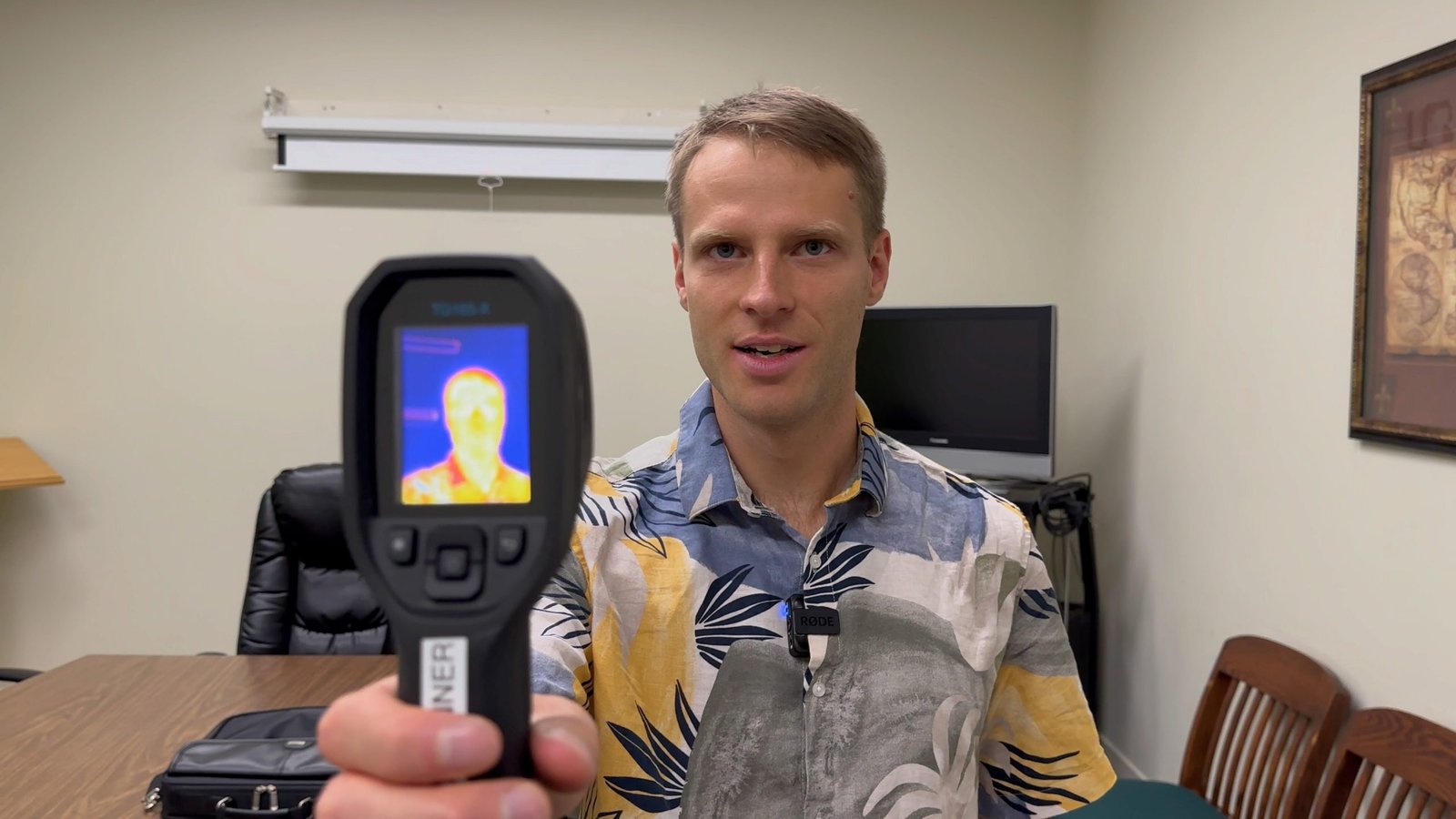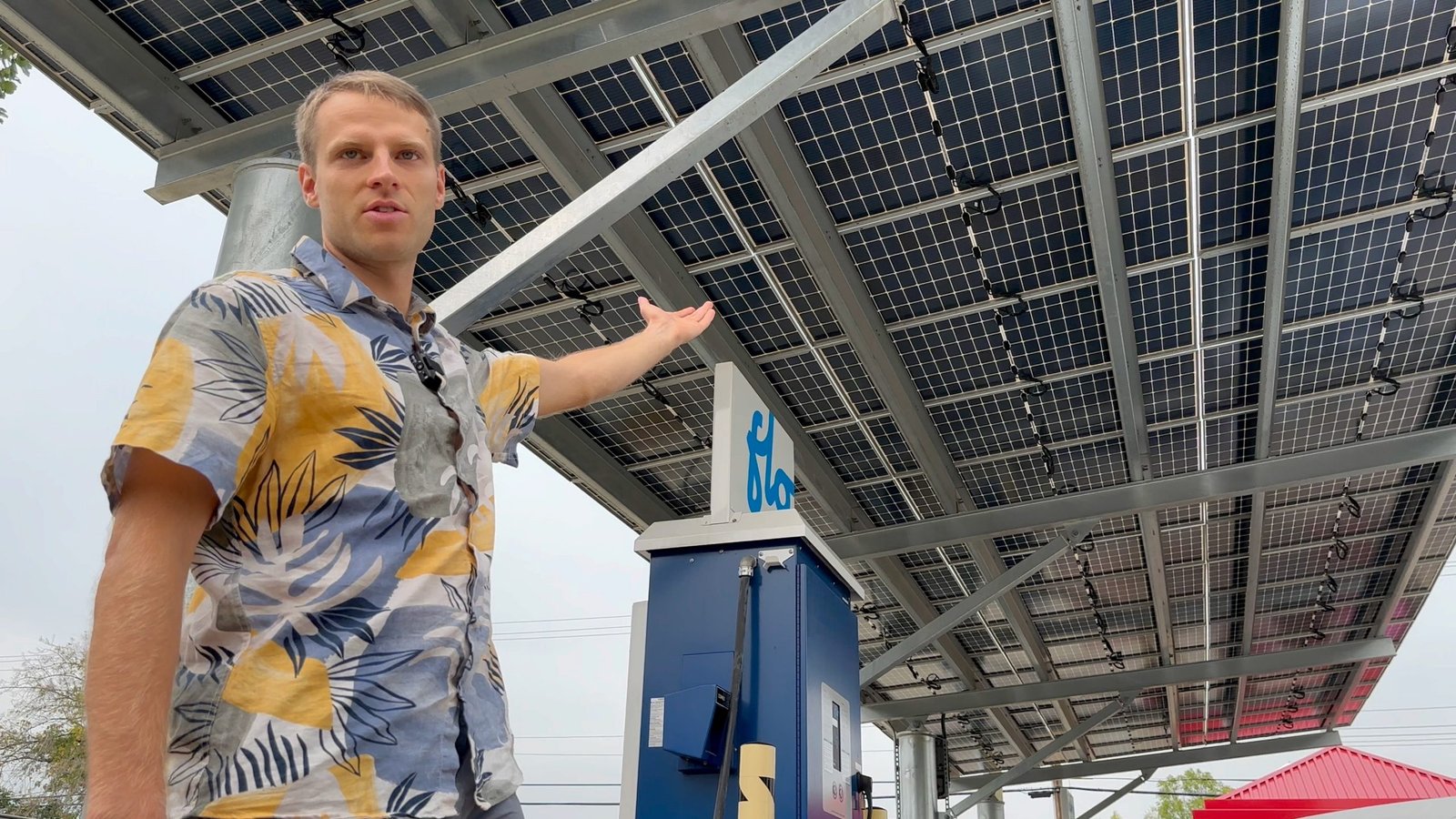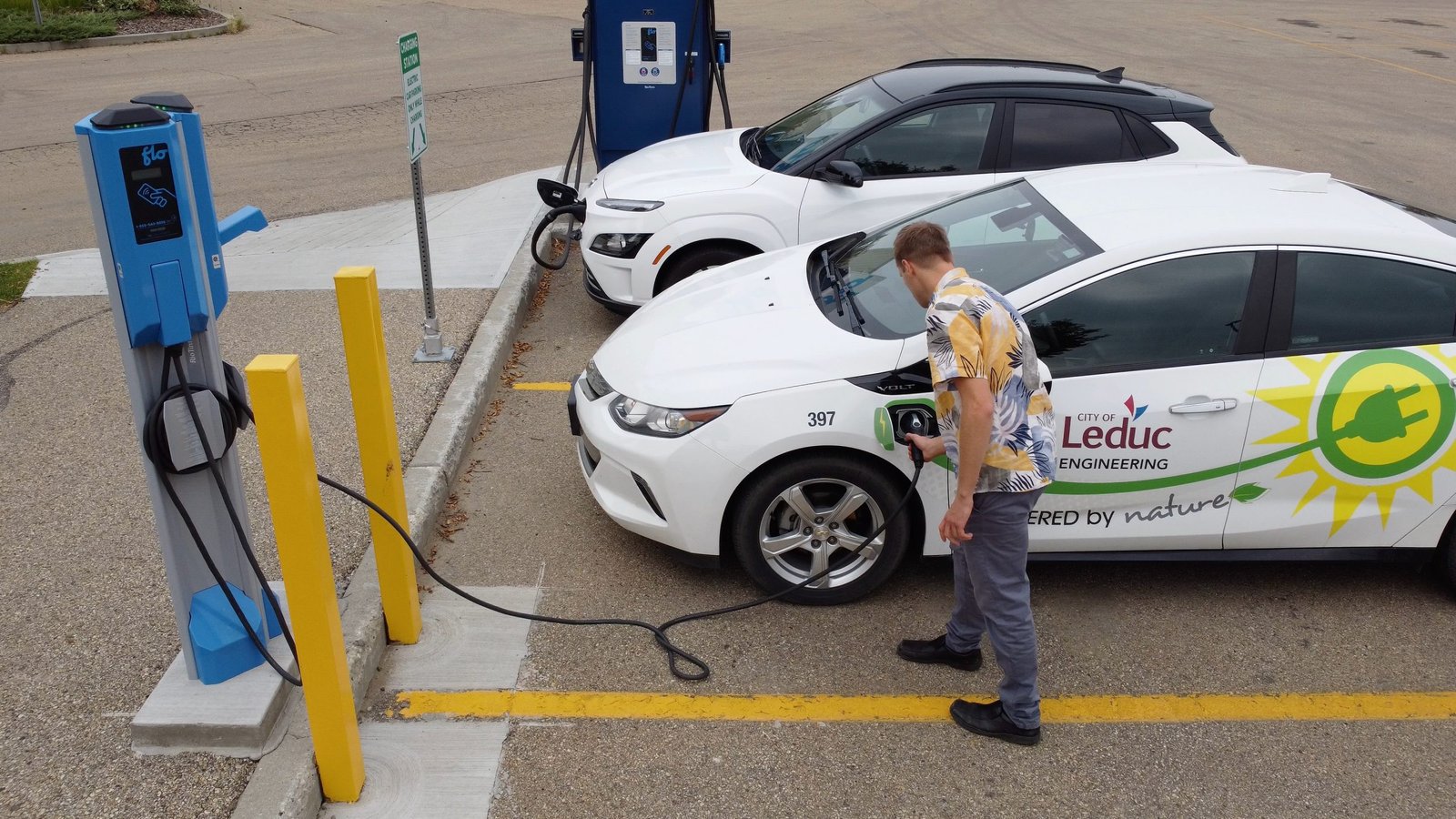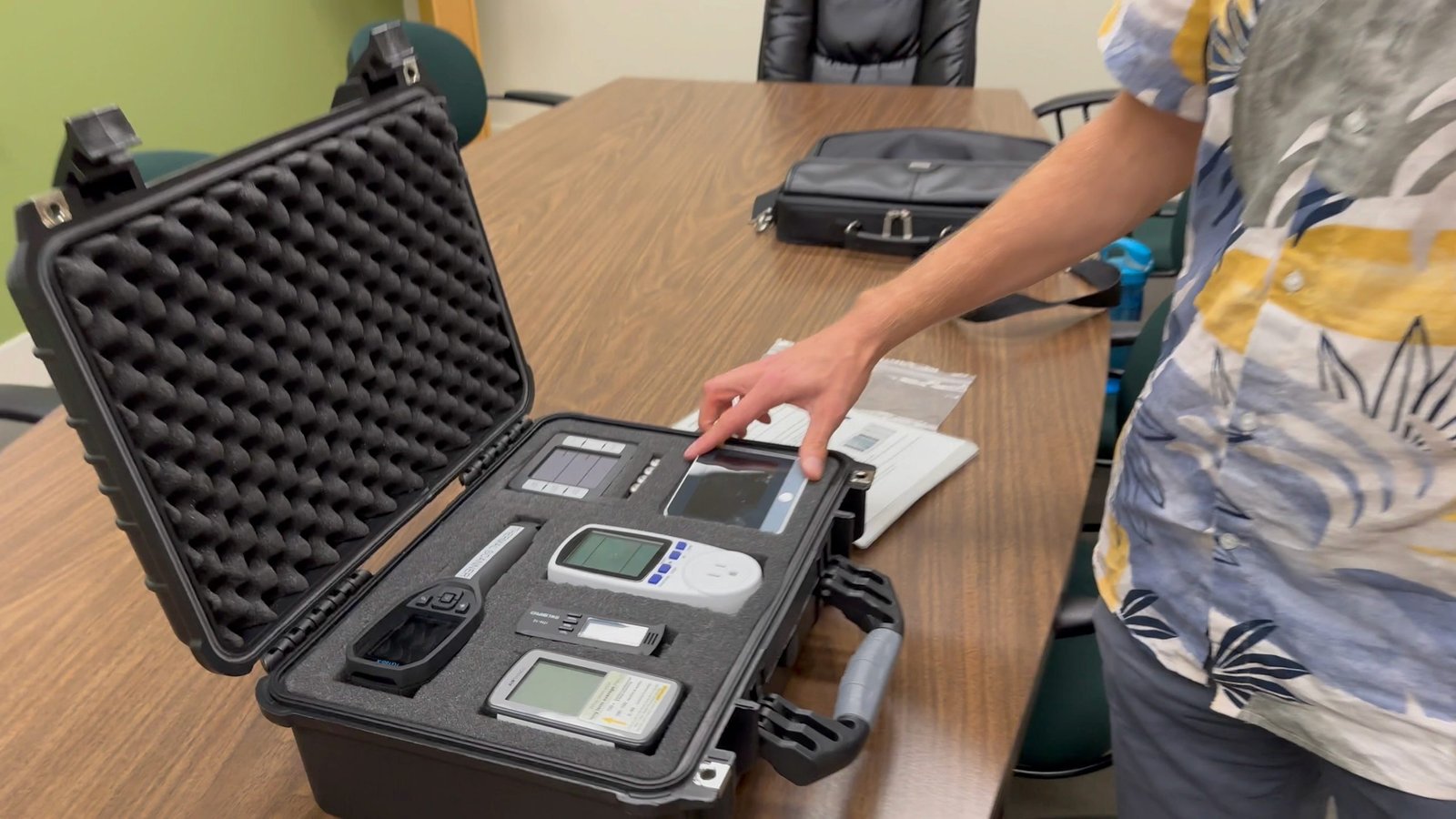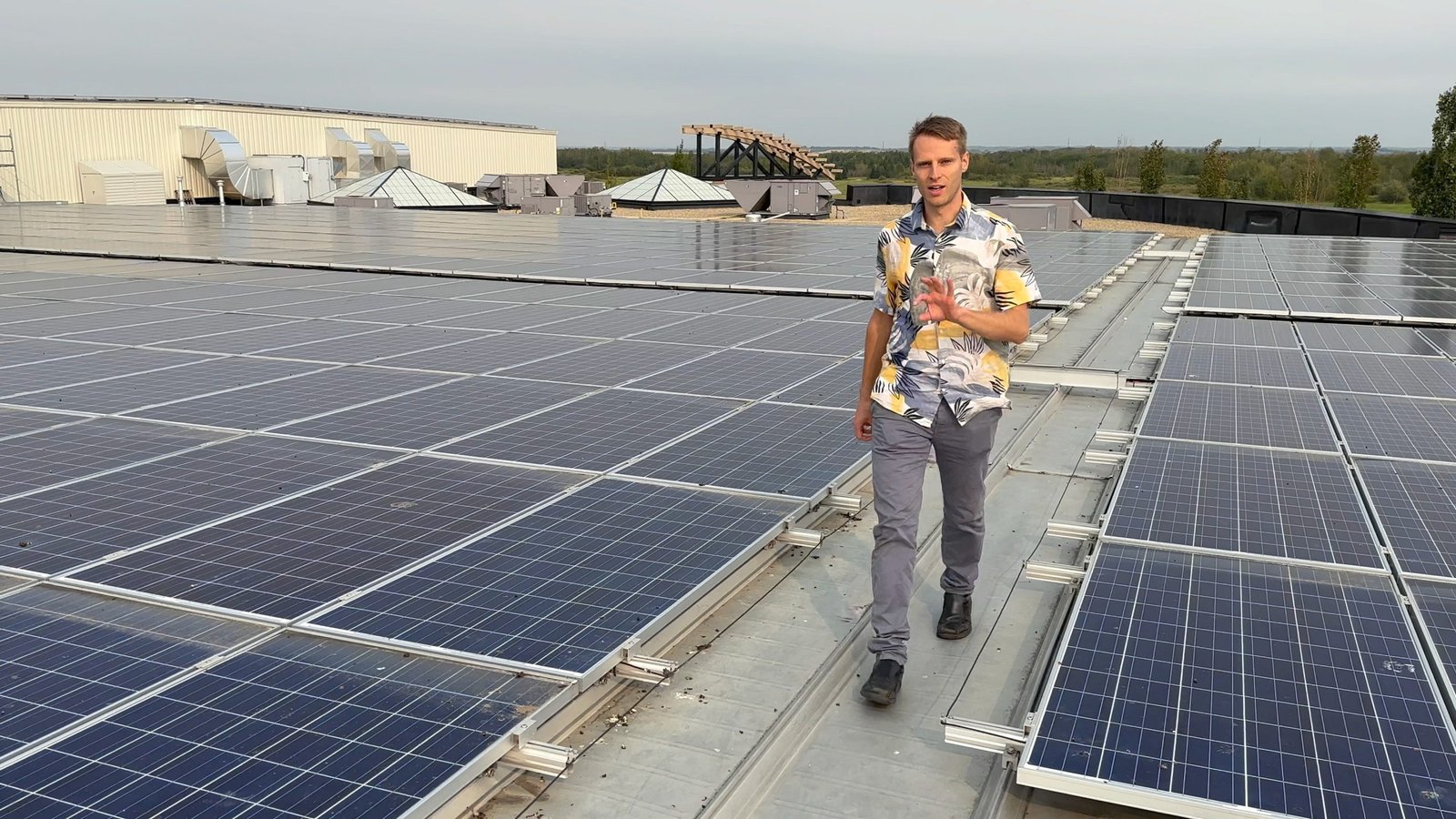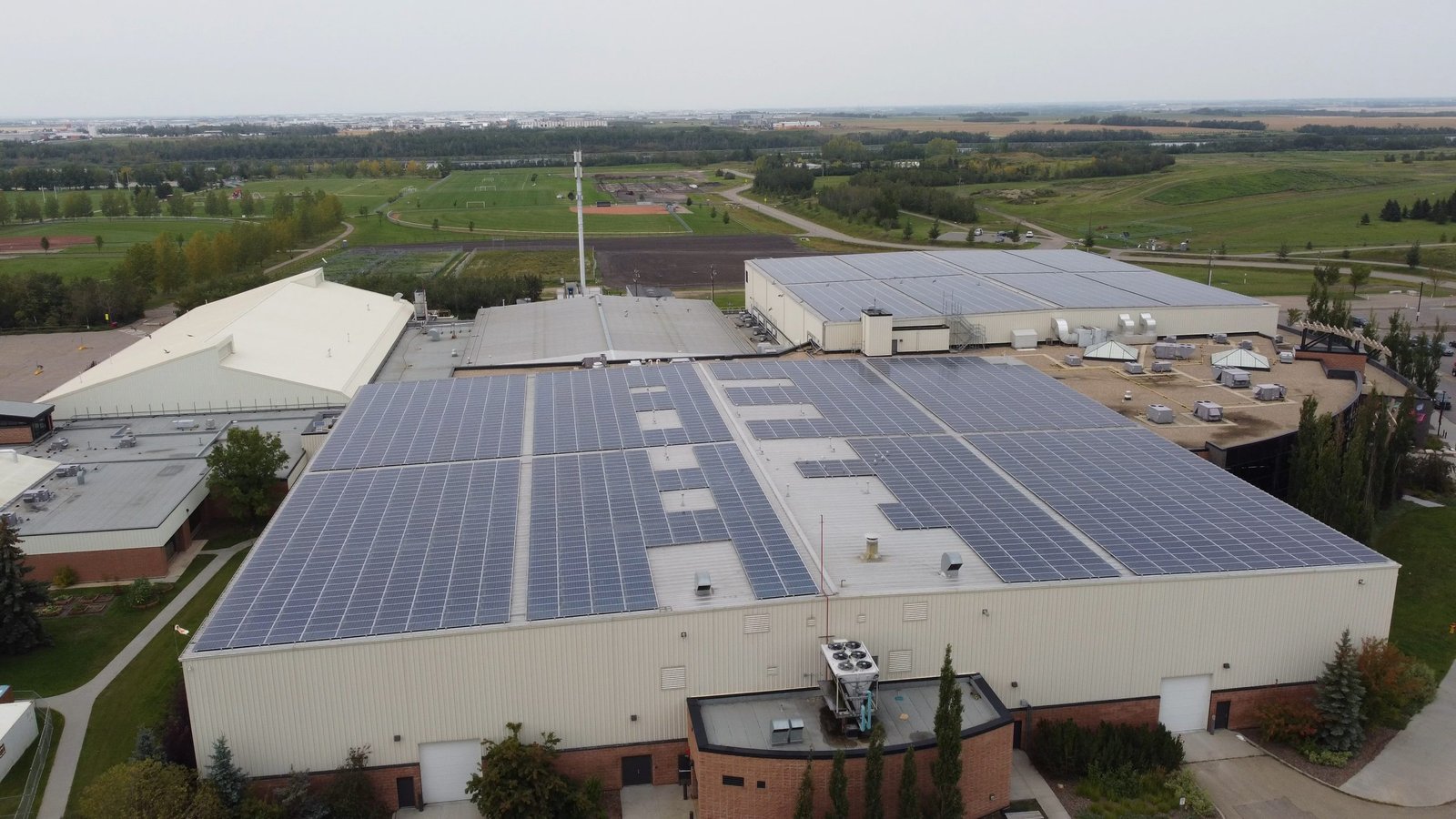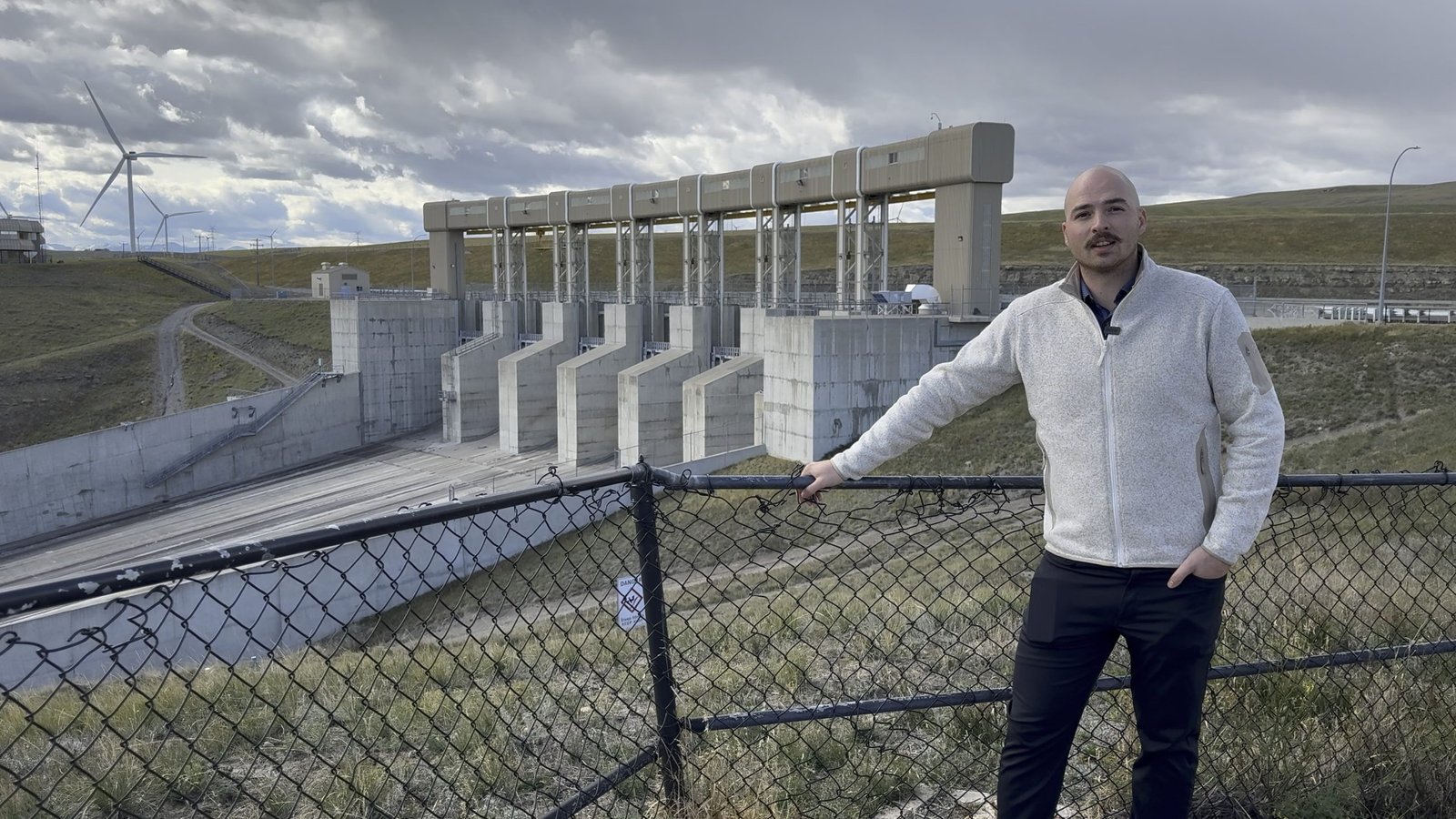The Municipal Climate Change Action Centre
Municipalities Taking Climate Action – Part II
By David Dodge, GreenEnergyFutures.ca
One of the first stories we did at Green Energy Futures was on Dawson Creek, British Columbia which among the many cool green projects they undertook also hired an energy manager to help find ways to save energy and reduce emissions.
Strewn all over energy manager Matthew MacWilliam’s desk were new energy-saving technologies and innovative solutions. It was like being in an energy-efficiency candy store and the benefits of small communities hiring energy managers were obvious.
That was in 2013. Fast forward a decade and the Municipal Climate Change Action Centre (MCCAC) in Alberta is embracing the idea. The MCCAC has helped 26 small towns and communities in Alberta hire energy managers.
“Municipalities with energy managers accessed $53 million in energy retrofit-related grant programs, which is absolutely massive,” says Calvin Lechelt program lead for the energy managers program at the MCCAC in Alberta.
These 26 energy managers are helping 37 communities reduce energy costs, install solar, help run energy efficiency loan programs and prepare climate change adaptation action plans.
Small towns and municipalities want to do energy efficiency projects, install solar and save money, but most have neither the money, expertise or the capacity to figure it all out.
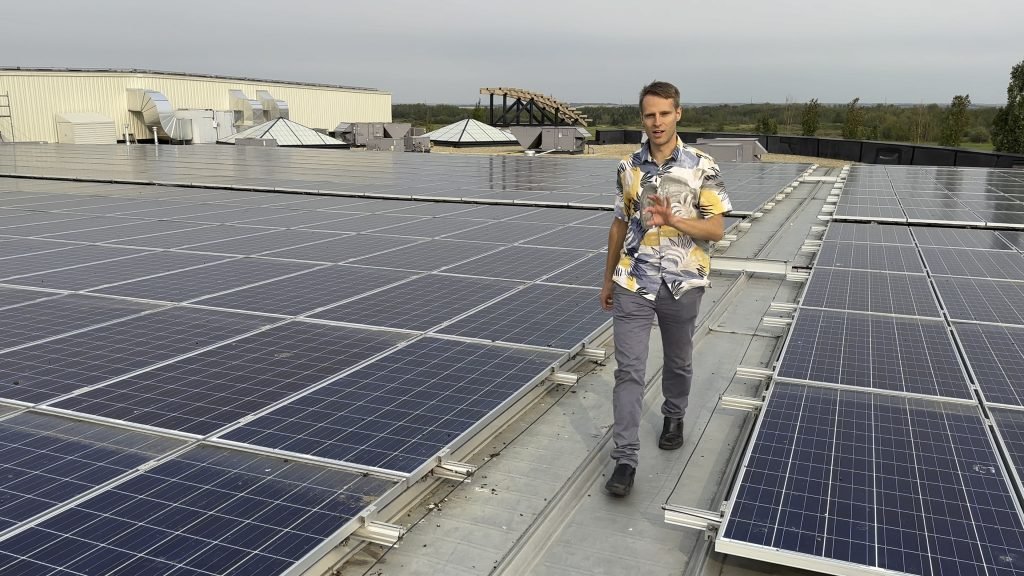
It’s the classic chicken and egg dilemma
It takes money to save money. Energy costs often make up a big part of municipal budgets so saving energy and money is very appealing to them.
Nathan Schaper is the energy project manager in Leduc, Alberta. One of the first things he did after being hired was to look at the peak energy numbers that their utility was using to charge them for electricity.
“So, when we worked with the electricity contractor and reduced those contracts, we’re able to save, between all of our facilities here, $43,000 a year,” says Nathan.
Right out of the chute, Nathan saved Leduc a pile of money.
I met up with Nathan in Leduc at the public library where they have energy efficiency kits you can borrow from the library.
“We have four energy kits consisting of a thermographic scanner, a wattmeter, and a whole bunch of other equipment that anyone can take from the library. These little kits help people evaluate their energy use in their homes such as breaks in the air seal of the home which show up as cold blue spots on the thermographic scanner.
That’s just one idea that Nathan borrowed from his energy manager colleagues.
Nathan has helped Leduc line up $1.8 million in grants to build solar projects, do energy efficiency measures and even help residents get involved.
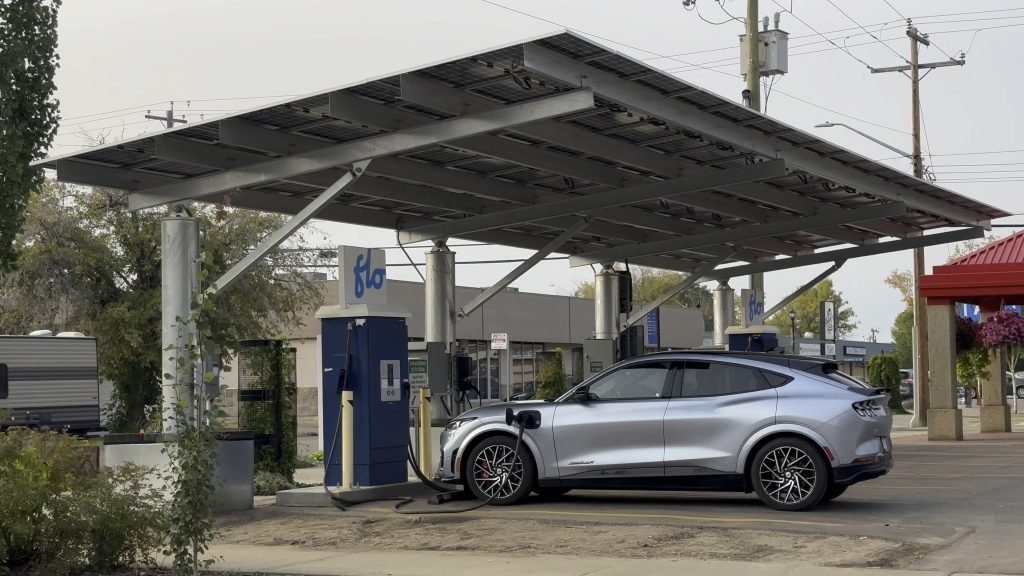
Solar-powered EV charging
One of the coolest projects Nathan has implemented is a solar-canopy electric vehicle charging station in the heart of downtown Leduc.
“This solar carport has four charging stations. There are two fast charging stations and the two level two charging stations,” says Schaper.
It is a cool-looking charger station and during the day when the sun shines cars charge using solar energy and the kicker is it’s free.
“So the reason why it’s free to use is because we wanted to encourage lots of people to come here to get to know Leduc a little bit, come check out the lake, come get a coffee and a donut at one of the coffee shops downtown, and get to know the city a little bit more,” says Schaper.
Then Nathan took me to the Leduc Recreation Centre and clamoured up on the roof where he stood amidst a sea of solar modules for our interview.
“We have about 1.5 megawatts total in the city of Leduc, including 1.1 right here in the rec center,” says Schaper.
Not only is Leduc saving $100,000 per year thanks to the solar, Nathan says they’re also “Getting a ton of calls about solar right now. Solar in the Leduc area often has around a 10-year payback,” he says.
The recreation centre also did an extensive lighting retrofit a few years back which has been “really successful” and now outside in the parking lot are another two fast level III and two level II EV chargers.
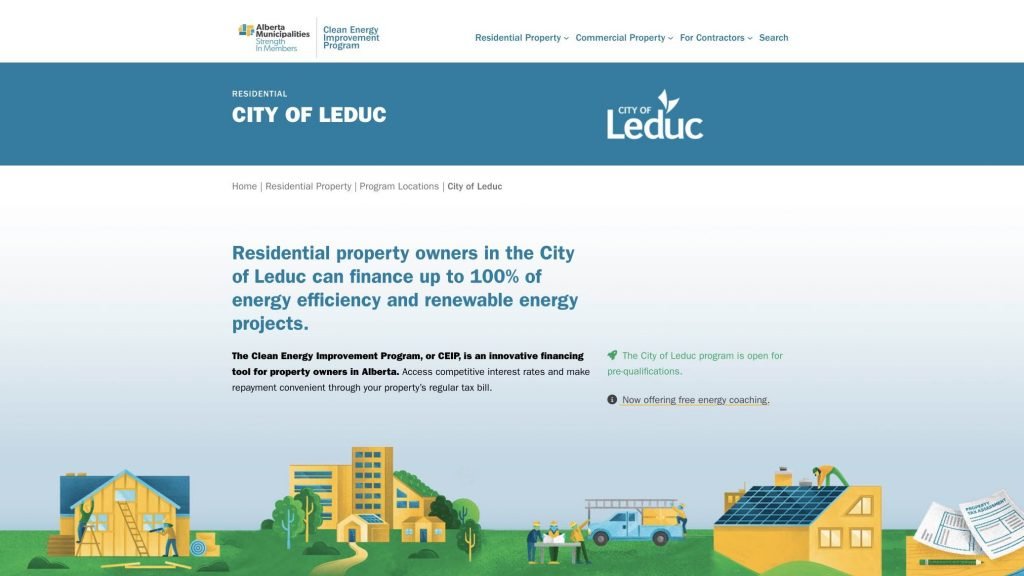
Clean Energy Improvement Program
People are also calling Nathan about the Clean Energy Improvement Program (CEIP) a low-interest loan program developed by Alberta Municipalities.
“Lots of people in the City of Leduc are installing solar on their houses through the CEIP program. And so that’s a low-interest loan program. where people can use the City of Leduc’s financial resources to get a low-interest loan to upgrade their property and make them more energy efficient,” says Schaper.
People are adding insulation, installing better windows and doors, replacing their furnaces and installing solar.
CEIP provides low-interest loans which are attached to the home and not the homeowner which makes a lot more people comfortable making long-term investments in energy efficiency or solar for their homes.
“It’s been hugely successful…we saw the program fill up immediately, and we’ve had, about 56 applications so far,” says Schaper.
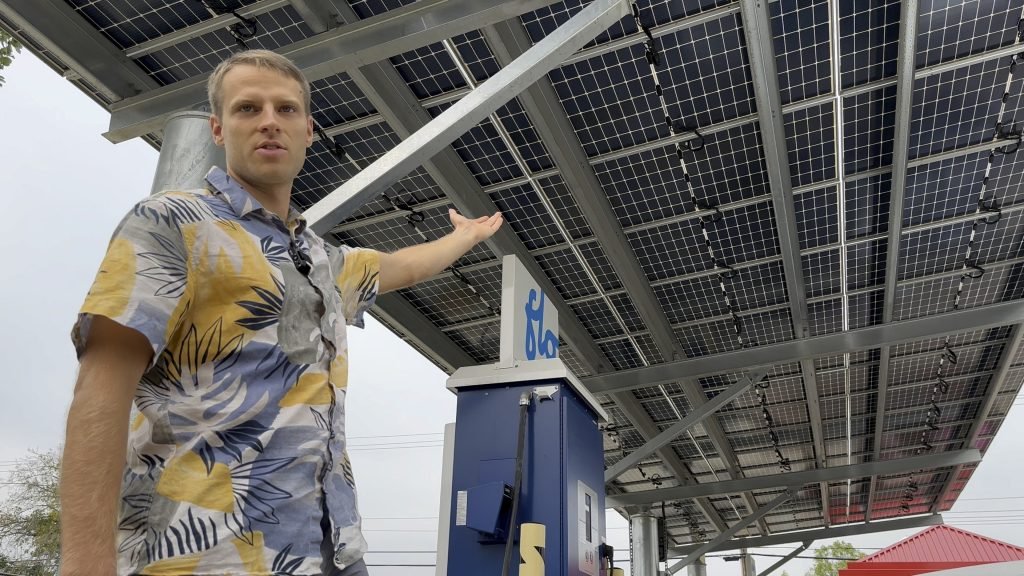
Small towns are green fields for energy efficiency
For energy managers like Nathan Schaper being an energy manager is a tremendous opportunity to work on diverse, innovative solutions and highlight the benefits of energy efficiency solar and electric vehicles for communities.
It’s probably why the energy managers program has attracted such talented and qualified people. Nathan is an engineer and his colleague Tristan Walker in Pincher Creek moved there from British Columbia. He also has an engineering degree and a master’s degree in sustainable energy.
Brandon Sandmaier in Sturgeon County is a NAIT Alternative Energy program graduate. He owned his own solar company before taking the position in the county.
A total of 26 energy managers were hired through the program in places like Stony Plain, Airdrie, Taber, Drayton Valley, Pincher Creek and 21 other places.
A little over half of the 26 municipalities participating kept their energy managers on full-time after the program expired.
That shows the energy managers are bringing a lot of value to their communities in terms of cost savings and even reductions in greenhouse gas emissions, says Lechelt.
Next time in our Municipalities Taking Climate Action series we will look at one municipality that with the help of the MCCAC carried out an extensive climate impacts risk assessment and adaptation plan and why this is so important in this era of climate change.

